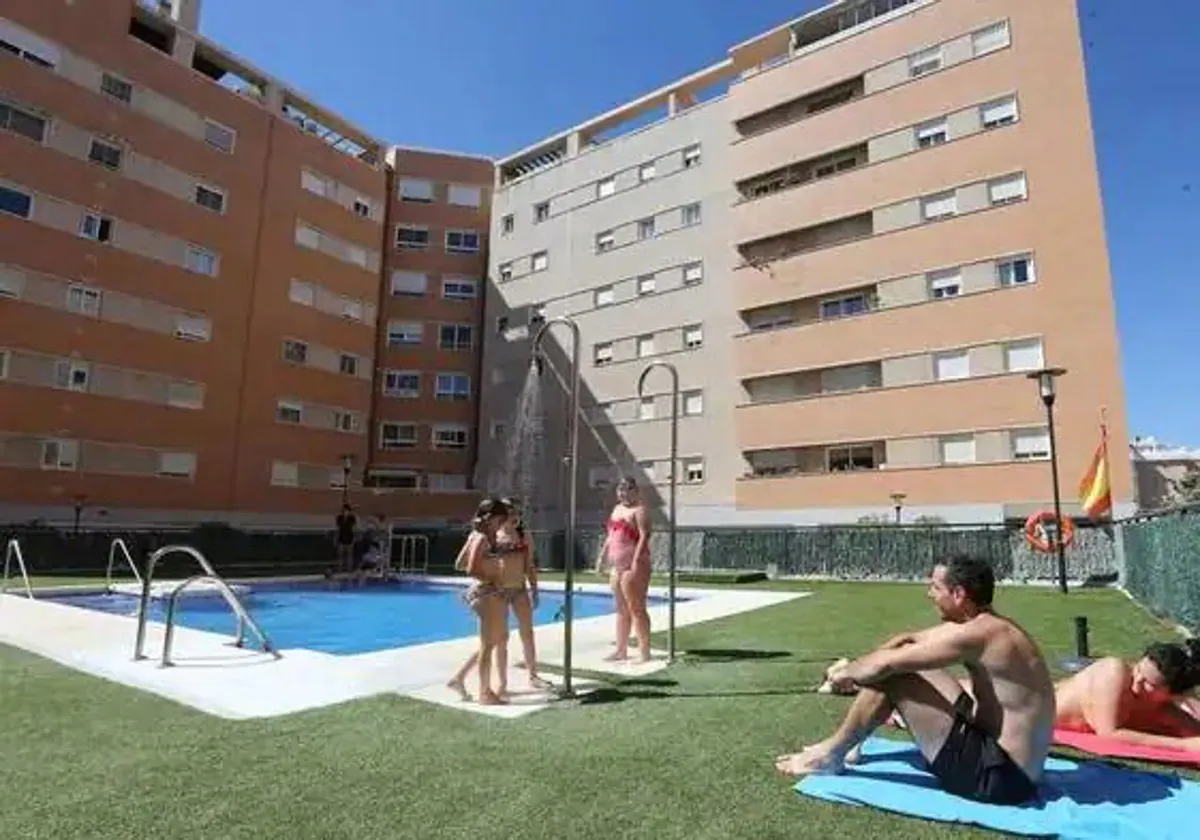Swimming pool confusion on the Costa amid ongoing drought crisis: Will they be allowed to open this summer?
Property administrators in Malaga province are calling for clarity from the authorites ahead of the traditional opening of many community pools at Easter
Ignacio Lillo
Malaga
Tuesday, 27 February 2024
Communities of homeowners on the Costa del Sol are facing a regulatory nightmare when it comes to the opening of their swimming pools amid the drought crisis in the south of Spain, claiming regulations are still unclear.
With Easter week just around the corner at the end of March, which often marks the opening of community swimming pools on the coast, Malaga province property administrators have pointed out they still don't definitely know whether they can refill them or open the pools up for access.
The problem lies in the Junta de Andalucía's drought decree and the town councils' restrictions on water usage, which contradict each other, according to president of Malaga association of property administrators Manuel Jiménez Caro.
"With high temperatures in February, many residential communities are already asking to prepare pools to open at Easter (24 March) and we don't know what to advise them," he said.
The latest drought decree of the Junta specifies pools can only be filled if they are newly built, and allows for the top up any losses due to evaporation etc which are estimated to be 2 -3% daily. In practice this would mean that they may have to be completely filled two to three times throughout the summer season.
Water tanks
And this is where the confusion with the municipal rules come in, which vary from one town hall to another. Many municipalities authorise the use of water tanks for refilling swimming pools, which in practice allows them to open; but at this point the technical sanitary decree of the Junta de Andalucía in 2019 comes into play, which states that this water must be treated beforehand, in a holding tank separate from the pool; or in the pool itself, which means having to close it for two to three days in the middle of summer.
Already, in some areas, public water companies are removing or sealing the supply meters to pools, as is happening in Rincón de la Victoria and Benalmádena. In these cases, in practice, the pool would not be allowed to be used as the regulations state it is compulsory for there to be running water in toilets and showers.
In Malaga city, topping up is limited to the use of non-potable water (by means of tankers), but the meters have not been removed. In several coastal municipalities there is already a warning that tampering with seals will be reported to the Seprona (the environmental branch of the Guardia Civil), while in Malaga city fines range from 6,000 euros.
In addition, supplementary water deposits are expensive and require installation, which takes time and space. Added to this is the price of the tanks: if at the beginning of last summer they cost 100-110 euros, by the end of the season they had already shot up to 600 euros.
Along the coast it is not known how the rules will affect the communities that have their own wells or if they decide to use sea water, which is another option that is being considered. Asked about this possibility, the property administrators admit that it is on the table, although the chlorination and filtering systems would have to be adapted, in addition to the issues already mentioned regarding on-site treatments or the use of supplementary tanks. "At the moment we do not know if we can use water captured from the sea."
Call for clear rules
Malaga's Colegio de Administradores de Fincas is calling for "clear regulations" for the use of water in communal areas "coordinated between all municipalities and supervised by the Junta".
President of the association Manuel Jiménez Caro said: "We are aware of how important water is for human consumption and that there is a serious problem of drought, so we ask for clarity because we are responsible for ensuring that the community rules are complied with". He said that, as of now, they do not know what to recommend to their clients. "Easter is the beginning of the season and it is close, so they have to make decisions as soon as possible."
"In the end, we fear that there will be some pools open and others closed and that creates problems between neighbouring communities, as happened last year in the Axarquia area. The lack of water affects the entire province and the basins are interconnected. That's why it doesn't make sense for there to be different rules in each municipality," Caro added.
